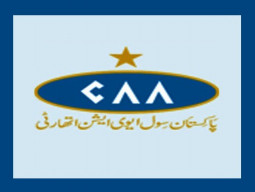
The 48 countries that make up the NATO-led force in Afghanistan signed a deal with President Hamid Karzai to begin handing his government control of the war in early 2011 and cede command to it by the end of 2014.
At the same time, however, NATO Secretary General Anders Fogh Rasmussen said the Western allies would stand by Kabul even after their combat mission ends.
'The aim is for Afghan forces to be in the lead countrywide by the end of 2014,' Rasmussen said, as he and Karzai announced the deal after talks between coalition leaders at the NATO summit in Lisbon.
'We will stay after transition in a supporting role. President Karzai and I signed an agreement on a long term partnership between NATO and Afghanistan that will endure beyond our combat mission,' he added.
US President Barack Obama and his allies in NATO's nine-year-old Afghan conflict met seeking an exit strategy for their 150,000-strong force, but nevertheless the White House admitted the war is far from over.
'There's a lot of hard fighting still ahead,' a senior US official told reporters, adding that Obama had not yet given an order to transform the US military's mission from war-fighting to a support role.
Even as NATO met, four more Afghans were killed and 33 wounded when two suicide bombers struck in the east of the country, adding to a grim civilian toll in the bloodiest year yet for allied soldiers and ordinary Afghans.
The summit was attended by leaders from the 28 NATO allies, the 20 other nations that fight alongside them in the ISAF military coalition, big cash donor Japan and UN Secretary General Ban Ki-moon.
A small group of anti-war protesters briefly chained themselves across a road a few hundred yards (metres) from the venue, but they were quickly removed by Portuguese police and there was no sign of large scale demonstrations.
NATO commanders want the allies to send enough funds and military trainers to allow them to boost the total size of Afghanistan's national security forces to 306,000 from 256,000 within the next 12 months.
Alliance officials insist the transition to Afghan control is not a rush to the exit, but the war is unpopular in Europe and cash-strapped governments are under pressure from voters to bring soldiers home.
Nevertheless, Obama hopes to convince his allies to send more troops to train Afghan security forces plagued by desertion and corruption. Summit host Portugal said it plans to send 40 more trainers.
Karzai surprised his allies this week by urging US forces to scale down military operations and halt unpopular night raids by special forces, but after the talks he suggested that the row had been smoothed over.
'I hope that as we move forward many of these difficulties will go away and that then our movement to the future will be one without the difficulties that we are encountering,' he said, when asked about the raids.
The number of ordinary Afghans killed in the conflict rose by a third in the first six months of 2010 to 1,271, with most deaths caused by Taliban insurgent attacks, the United Nations reported in August.
The Alliance was to hold a separate meeting with Russian President Dmitry Medvedev to strike a new cooperation deal on Afghanistan and invite Moscow to take part in a new missile defence shield.
'A former military adversary is now clearly a partner,' German Chancellor Angela Merkel told reporters at the summit. 'It's a turning point in working together that we can clearly call historic.'
Russia helps NATO on Afghanistan by allowing alliance supplies, except weapons, to transit through its territory and by providing counter-narcotics training to Afghan officials outside Moscow.
NATO, which faces rebel attacks on fuel trucks in Pakistan, wants Russia to expand the list of permitted goods to include armoured vehicles.






1732240636-0/WhatsApp-Image-2024-11-21-at-19-54-13-(1)1732240636-0-270x192.webp)










COMMENTS
Comments are moderated and generally will be posted if they are on-topic and not abusive.
For more information, please see our Comments FAQ